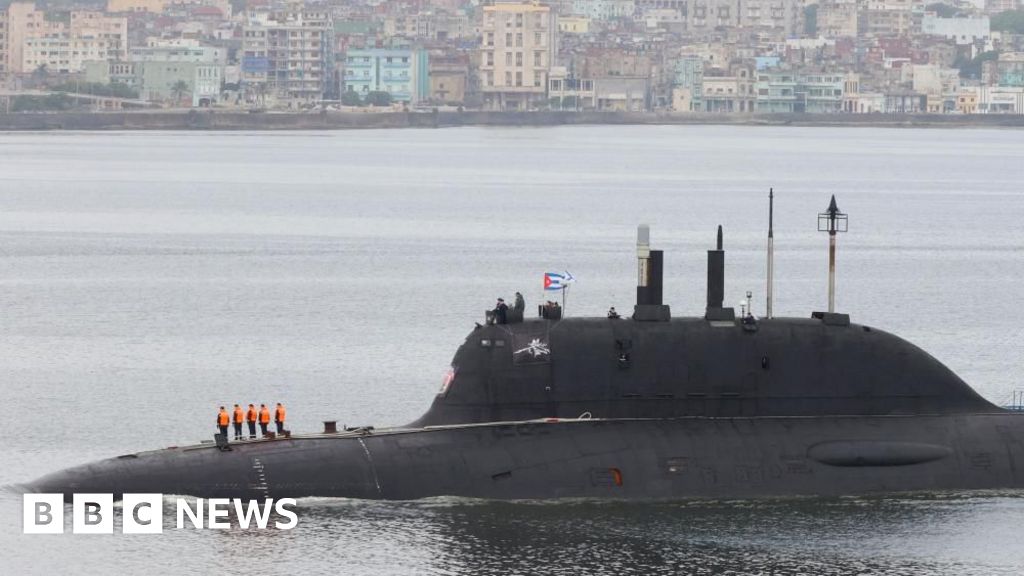Russian warships in Cuba are no threat, US says

US officials have played down Wednesday’s arrival of four Russian naval vessels in Cuba for military drills.
The visit of the vessels – which include a nuclear-powered submarine and a frigate – have been seen as a show of force amid Moscow’s tensions with the West over the war in Ukraine.
They are anchored at the Havana Bay – some 90 miles (145km) from the US state of Florida.
“We of course take it seriously, but these exercises don’t pose a threat to the United States,” the Pentagon said.
The Russian moves were consistent with “routine naval visits that we’ve seen under different administrations,” press secretary Sabrina Singh added.
Russia’s defence ministry says the Admiral Gorshkov frigate and the Kazan submarine are both carriers of advanced weapons, including hypersonic missiles Zircon. They earlier conducted missile drills in the Atlantic.
But Cuba’s foreign ministry says none of the vessels has nuclear arms on board, and their five-day visit does not pose a threat to the region.
US officials say they are closely monitoring the visit. The US Navy also used sea drones to shadow the Russian vessels as they got close to Cuba, BBC’s US partner CBS reports.
Early on a grey and overcast morning, the Russian vessels entered Havana Bay, flanked by smaller support vessels, to a 21-gun salute.
In a statement, Russia’s defence minister said the visit was unofficial, allowing the vessels’ crews to “rest and get acquainted with local attractions”.
Russia has sent warships to Cuba in the past and the two nations are long-standing allies – but the timing of these particular exercises stands out.
Coming amid growing tensions over Russia’s full-scale invasion of Ukraine in 2022, the operation is being interpreted by some as sabre-rattling by Moscow.
Certainly, it appears to send a pretty clear message from the Kremlin to Washington about what they consider to be meddling in their backyard.
The visit is an important symbol of support to the communist-run government in Cuba and its socialist ally, Venezuela, where the warships may sail to next after they finish in Havana.
In essence, while the visit may be considered broadly routine, the context of wider global hostilities in which it is taking place is anything but.
Related
What’s at stake for American culture with Trump’s Kennedy Center…
In her two decades as a human rights lawyer, working on issues in more than 25 countries, Hadar Harris says she is alarmed by what she's witnessing on U.S. soil
Denmark lost 52 soldiers fighting alongside the US. Now it…
Nick BeakeEurope correspondentBBCAll his adult life, Colonel Soren Knudsen stepped forward when his country called. And when its allies did.He fought alongside
As Trump upends foreign policy, Berkeley scholar sees irreparable damage…
Last week’s Oval Office blowup with Ukrainian President Volodymyr Zelensky exemplified what many foreign policy experts have long feared: that th
Trump creates a task force for the North American 2026…
President Donald Trump creates a task force to prepare for the 2026 W











